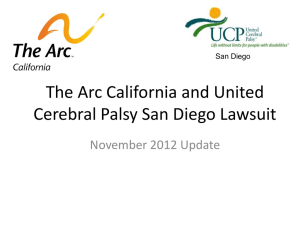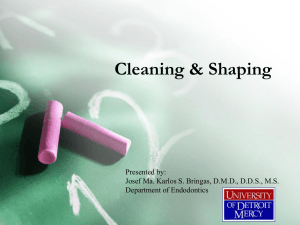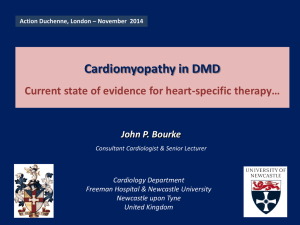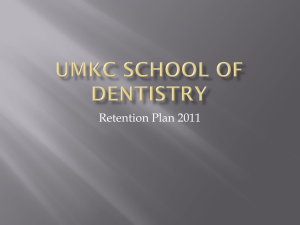Working Length Radiograph
advertisement
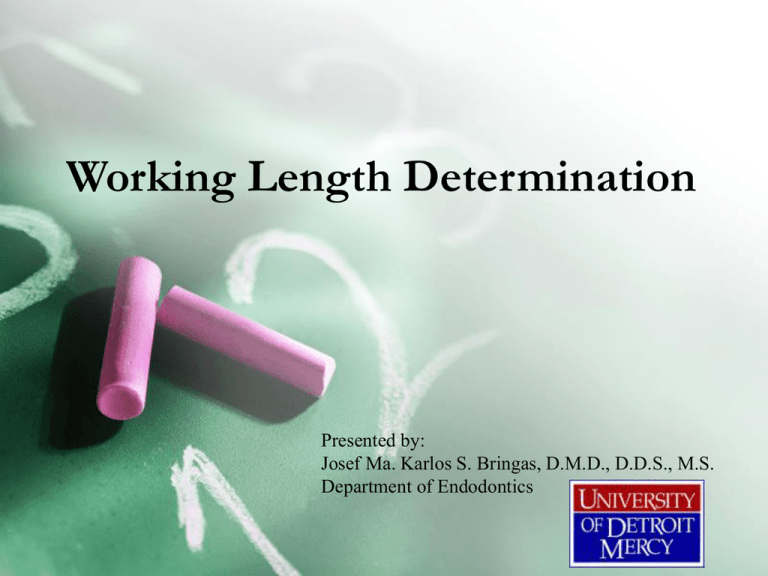
Working Length Determination Presented by: Josef Ma. Karlos S. Bringas, D.M.D., D.D.S., M.S. Department of Endodontics © 2006 J.Bringas, DMD, DDS, MS Radiographic Length • The length of the tooth as it appears on the radiograph. © 2006 J.Bringas, DMD, DDS, MS Estimated Working Length • Radiographic length minus 1mm. © 2006 J.Bringas, DMD, DDS, MS Final Working Length • is determined to be -1 mm from the anatomical apex as measured from the working length (WL) radiograph. • THIS IS THE LENGTH TO WHICH THE CANAL WILL BE CLEANED & SHAPED AND OBTURATED. © 2006 J.Bringas, DMD, DDS, MS Select a Reference Point © 2006 J.Bringas, DMD, DDS, MS Take a Preoperative Radiograph © 2006 J.Bringas, DMD, DDS, MS Preoperative Radiograph Apex • Measure the radiographic length. Reference pt. © 2006 J.Bringas, DMD, DDS, MS Measure the radiographic length Ex. 22mm © 2006 J.Bringas, DMD, DDS, MS Compute for Estimated Length • Estimated Length is radiographic length minus 1mm. Ex. 22mm - 1mm = 21mm © 2006 J.Bringas, DMD, DDS, MS Treatment Record © 2006 J.Bringas, DMD, DDS, MS Treatment Record Incisal edge 21 mm © 2006 J.Bringas, DMD, DDS, MS Set #15 file to Estimated Length Insert the file into the canal to stopper length and take a radiograph at this time. © 2006 J.Bringas, DMD, DDS, MS Working Length Radiograph • The best case scenario is that there is no radiographic distortion with the preoperative radiograph. • The working length radiograph should show that the file ends 1mm short of the apex. © 2006 J.Bringas, DMD, DDS, MS Working Length Radiograph • File appears to end 1mm short of the apex. • No need to adjust the final working length. © 2006 J.Bringas, DMD, DDS, MS Working Length Radiograph • In this case, estimated working length is equal to the final working length. • EWL = FWL • Record FWL © 2006 J.Bringas, DMD, DDS, MS Treatment Record Incisal edge 21 mm 21 mm © 2006 J.Bringas, DMD, DDS, MS Working Length Radiograph • Sometimes, the radiograph shows that the file extends more apical than the ideal. • This means that the EWL is long. • Deduct this discrepancy from your EWL to arrive at the Final Working Length. © 2006 J.Bringas, DMD, DDS, MS Working Length Radiograph © 2006 J.Bringas, DMD, DDS, MS Working Length Radiograph • Example: EWL=21mm 1mm • Since radiograph shows that file is 1mm long then… © 2006 J.Bringas, DMD, DDS, MS Working Length Radiograph • Example: • EWL – 1mm = FWL 1mm • 21mm – 1mm = 20mm © 2006 J.Bringas, DMD, DDS, MS Working Length Radiograph • Example: • EWL – 1mm = FWL 1mm • 21mm – 1mm = 20mm © 2006 J.Bringas, DMD, DDS, MS Treatment Record Incisal edge 21 mm 20 mm © 2006 J.Bringas, DMD, DDS, MS Working Length Radiograph • Sometimes, the radiograph shows that the file does not reach the ideal length. • This means that the EWL is short. • Add this discrepancy to your EWL to arrive at the Final Working Length. © 2006 J.Bringas, DMD, DDS, MS Working Length Radiograph © 2006 J.Bringas, DMD, DDS, MS Working Length Radiograph 0.5mm • Example: • EWL=21mm • Since radiograph shows that file is 0.5mm short then… © 2006 J.Bringas, DMD, DDS, MS Working Length Radiograph 0.5mm • Example: • EWL+0.5 mm=FWL • 21mm+0.5mm=21.5mm © 2006 J.Bringas, DMD, DDS, MS Treatment Record Incisal edge 21 mm 21.5 mm © 2006 J.Bringas, DMD, DDS, MS Working Length Radiograph • If the radiograph shows that the discrepancy is more than 2mm, then a new radiograph should be taken after computing for the working length. © 2006 J.Bringas, DMD, DDS, MS Unacceptable discrepancy © 2006 J.Bringas, DMD, DDS, MS


